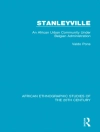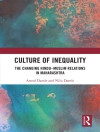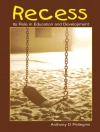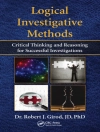This book brings together multiple strands of debate around the cultural creative industries and contemporary capitalism, China’s position in global capitalism, the future of modernity and new ways of thinking about culture and cultural policy. Clearly written and engaging, it is the first study to provide a critical lens on creative industries discourse and to bring it together with detailed historical and social analysis.
It analyses the ongoing development of China’s cultural industries, examining the institutions, regulations, interests and markets that underpin the Chinese cultural economy and the strategic position of Shanghai within that economy. Explores cultural policy reforms in post-colonial China and articulates Shanghai’s significance in paving China’s path to modernity and entry to global capitalism. In-depth and illuminating, this book situates China’s contemporary cultural economy in its larger global and historical context, revealing the limits of Western thought in understanding Chinese history, culture and society.
This book is aimed at a broad, educated audience who seek to engage more with what is happening in China, especially in the cultural field. It tries to take such an audience outside the standard frame of Western modernity, suggesting the possibility of different historical trajectories and possibilities. Because the book is theoretical and empirical in its approach, it will be of strong interest to both those interested in Chinese cultural policy and the creative industries approach generally.
Cultural and creative industries is an increasingly important subject area in Higher Education, with undergraduate and postgraduate programs representing some of the fastest growing areas in arts, humanities and social science faculties. This audience is increasingly global, as this policy debate has now moved outside the Western countries whose economic competitiveness it was meant to promote. It is an agenda promoted by agencies such as UNESCO, UNCTAD, the World Bank, British Council and the Goethe Institute.
Primary readership will be academics with a particular interest in Chinese culture, cultural studies, media studies, public policy and management studies, cultural policy, East Asian studies and cultural policy researchers. It will also be relevant to all those interested in China and Chinese’s culture; and those interested in the history of Shanghai and the role it plays in contemporary Chinese culture and politics. Given the current interest in China, it may also be of wider appeal too.
विषयसूची
Acknowledgements
Introduction: Unknown Knowns
Chapter 1: The Creative Industries and the China Challenge
Chapter 2: Culture, Modernity and the Nation-State
Chapter 3: Shanghai: Cultural Industries and Modernity
Chapter 4: Post-Reform China and Neo-liberalism
Chapter 5: China as a Civilizational State
Chapter 6: Shanghai: Creative City
Chapter 7: Reforming the Culture System
Chapter 8: Creative Subjects
Epilogue
Index
लेखक के बारे में
Justin O’Connor is professor of communications and cultural economy at Monash University and visiting professor in the School of Media and Design at Shanghai Jiaotong University.












